Discovering new places is only one aspect of traveling; another is preserving special moments and lifelong memories. And what better way to preserve the very essence of your vacation than via a camera lens? Photography possesses the amazing ability to capture and preserve passing moments, enabling us to revisit the sights we discovered on our travels.
But in the world of travel photography (even if you’re not doing it for a living), capturing the perfect image requires more than just pointing a device and clicking a button; it involves revealing the extraordinary in the ordinary, finding beauty in unexpected spots, and documenting events that convey emotions. And our Instagram feed deserves the best so we can share our memories with our family, friends and followers!
But what if you don’t know how to take amazing travel photos? What if you feel that your photos are boring and not as appealing as you would want them to be, but you don’t know how to fix this either? This article aims to spark your creativity by offering more than 15 ideas that you can put in practice right away and elevate your travel photography game.
1. Explore Unconventional Viewpoints
Imagine this: You’re in front of a famous landmark. Of course you have the instinct to point your camera directly at it and snap a photo. But try to remember how many pictures you have seen so far of that landmark, from that exact angle. Probably a lot. If you’re searching on Google photos of the Eiffel Tower, most of them look nearly the same:
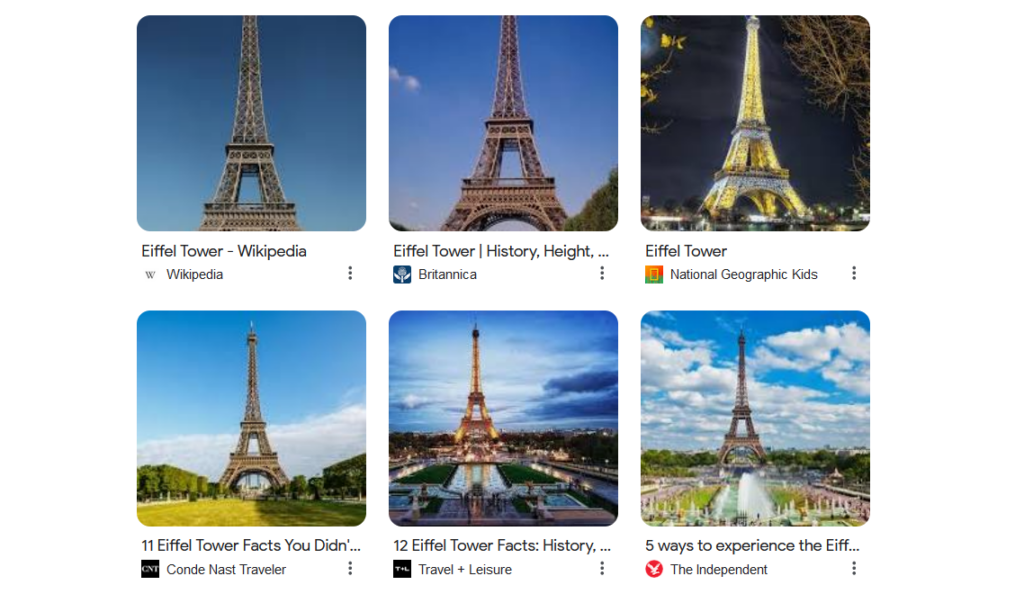
If you take ONE MORE photo from the same angles, it won’t have that special vibe you’re aiming for. OK, so what can you do instead? Go beyond the usual perspectives. Rather than taking a shot in front of the landmark, think about finding higher grounds, nearby rooftops, or even less-traveled routes that provide interesting vantage points. You can even capture just parts of it that offer a fresh perspective. For example, photograph the complex ironwork of the Eiffel Tower from below.
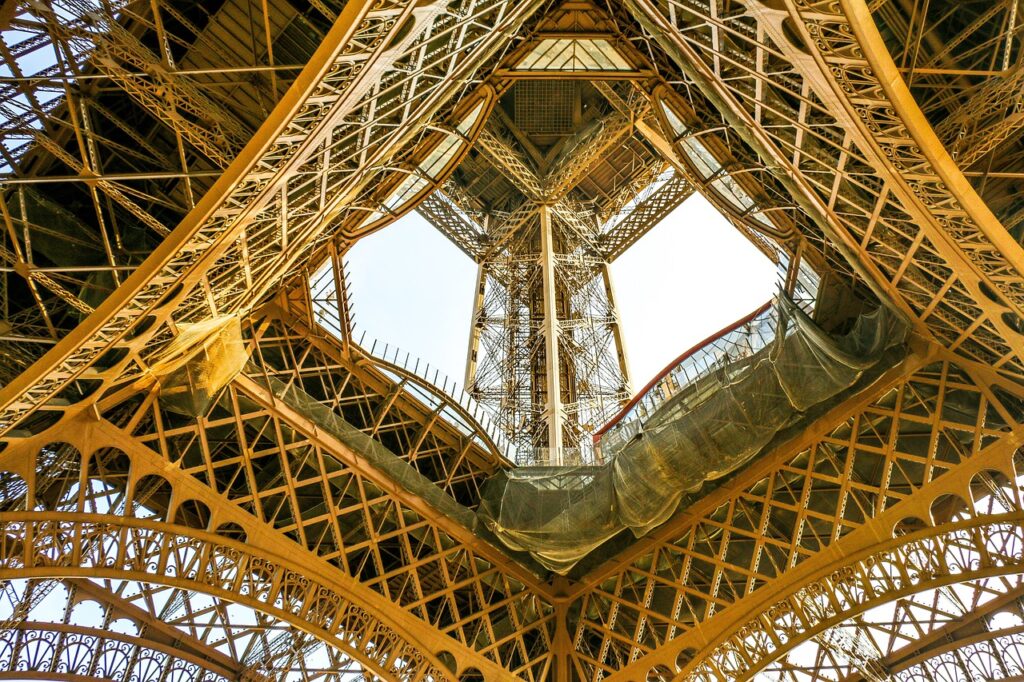
If you’re lucky enough to see the landmark from your accommodation, snap a picture from your balcony. Other ideas can be to use the surrounding vegetation to frame the landmark or photograph it in a reflection (in rain puddles, lakes, or even polished floors of nearby buildings).
2. Embrace Different Times and Weather
A landmark’s mood and ambiance can change significantly during different times of the day or in different weather conditions. Try taking pictures around sunrise or sunset to take advantage of the golden hour, or try capturing the drama of stormy clouds above the landmark. Even a little snow or rain can give your photos a magical feel.
If you are in a city, taking photos at night could be a great idea. The streetlights, combined with the cozy or vibrant lights coming from the windows of the buildings create a great contrast with the surrounding darkness and your photos can easily stand out.
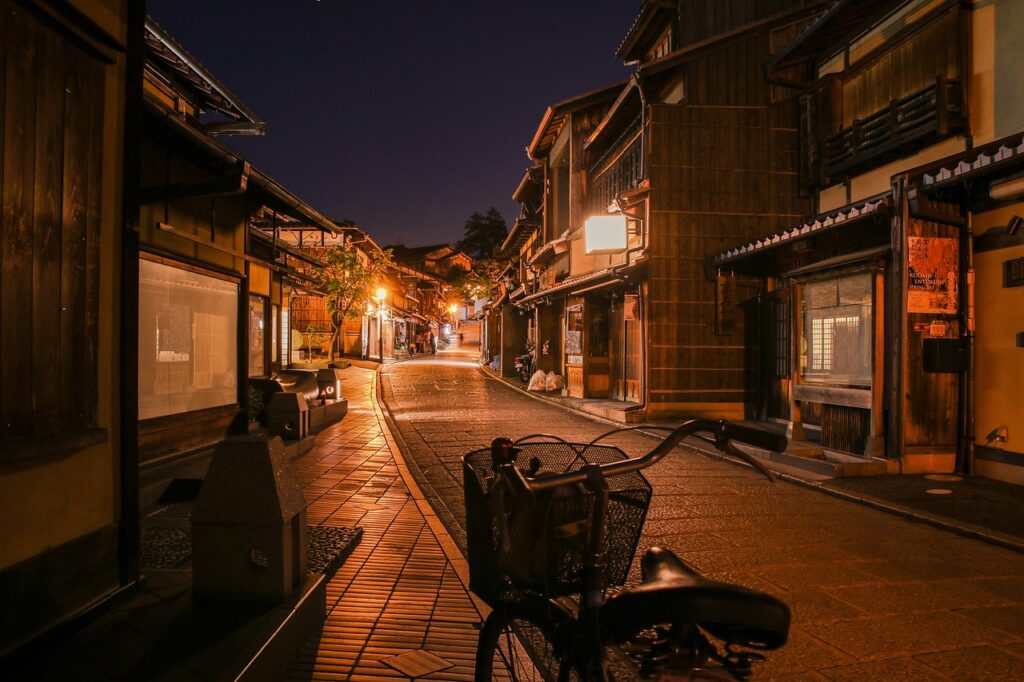
3. Play with Composition and Scale
Using composition and scale to your advantage can greatly increase the impact of your travel photos. Here are some useful information to keep in mind:
- Don’t be afraid to incorporate elements like trees, people, cars or buildings into your shots. These create depth and context and if used right, can give the photos an interesting starting point that leads the viewer’s eye towards the landmark or landscape you want to capture.
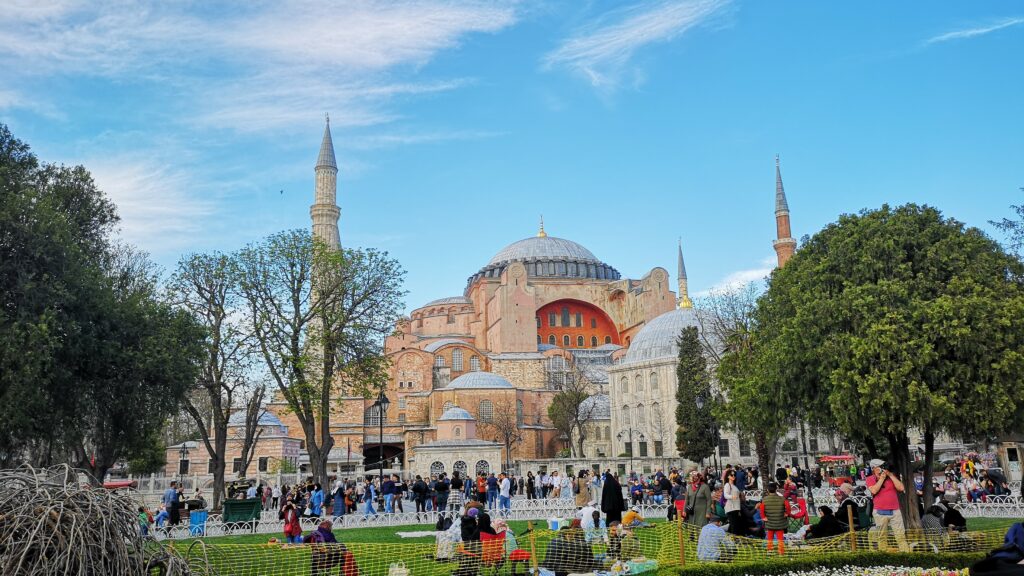
- Utilize natural or man-made lines to guide the viewer’s gaze towards the landmark. Leading lines can be effectively created by roads, walls, or even architectural elements like arches. Experiment with different angles to ensure these lines converge toward the landmark, drawing attention to it. For example, instead of taking the photo of a cathedral right in front of it, choose one of the streets that lead to it, and capture the image from a distance. See how the lines converge towards St. Stephen’s Basilica (Budapest, Hungary) in this photo I took a while ago:
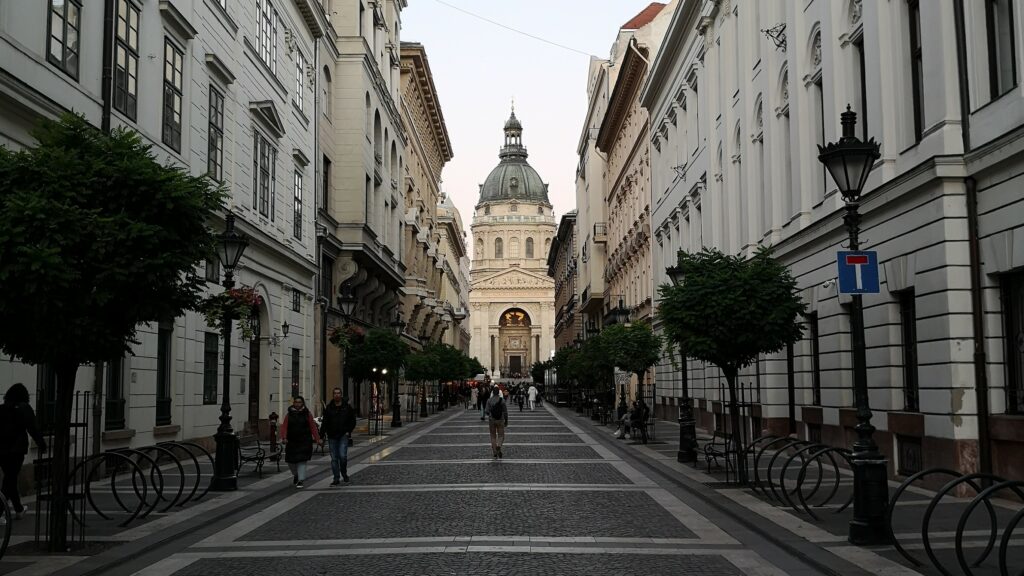
- Search for natural frames such as windows, doors, or archways for your picture’s main subject. This technique adds depth and focus. Make sure the landmark is complemented and highlighted by the frame, not eclipsed by it. Here’s an example in a photo I took in the Wadi Rum desert, Jordan.
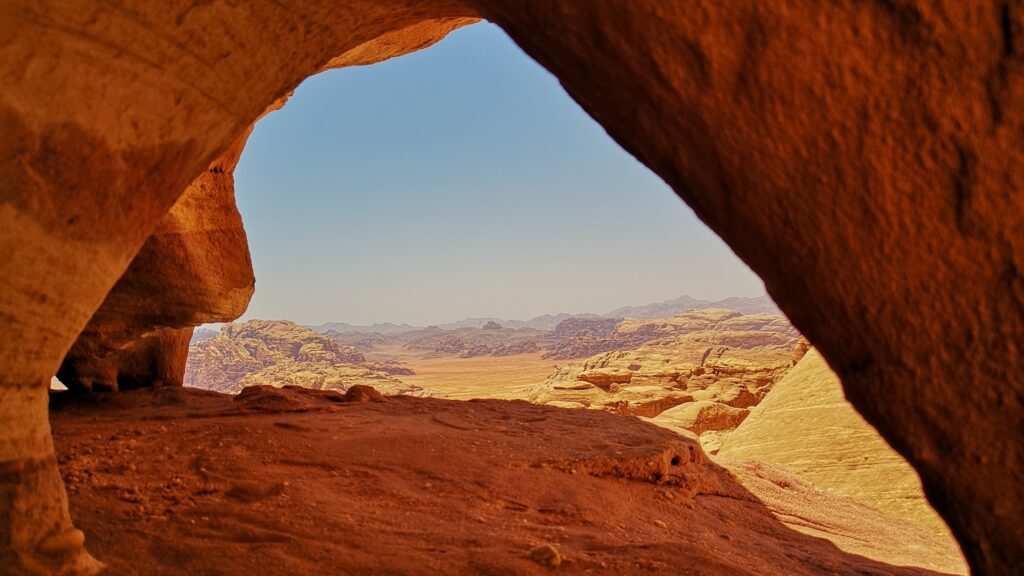
- If you want the viewer to have a sense of how big a structure is, include people in your composition. For example, a person standing beside a towering structure can provide a sense of its immense size. Just look at this photo from Petra, Jordan (yes, that’s me in the photo):

- Try shifting your point of view by going high or low to alter the landmark’s perspective. A monument’s intricate details can be observed from a different perspective when seen from above, but it can appear imposing when photographed from the ground. To give the composition a little more drama or individuality, you can also tilt the camera a little.
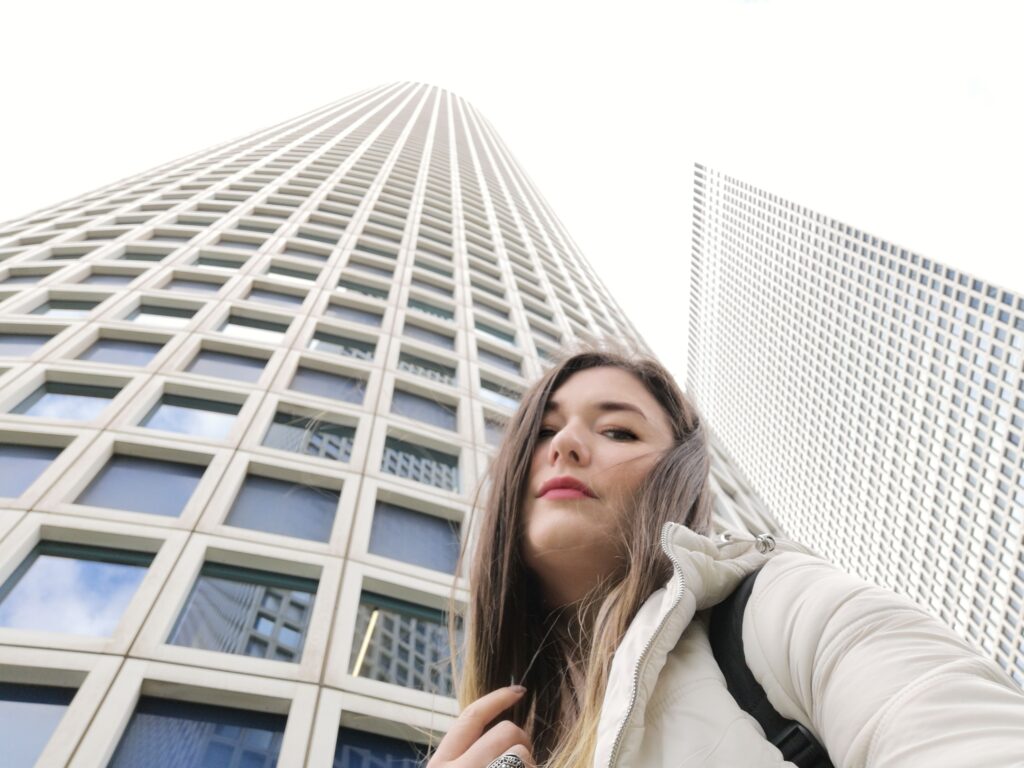
- Look for symmetry in the surrounding natural patterns or buildings. You can also use repeating architectural components or symmetrical reflections in water bodies to produce compositions that are visually striking. Center the landmark within a symmetrical setting to create a balanced and visually appealing shot. Here’s an example of a photo I took while in Budapest:
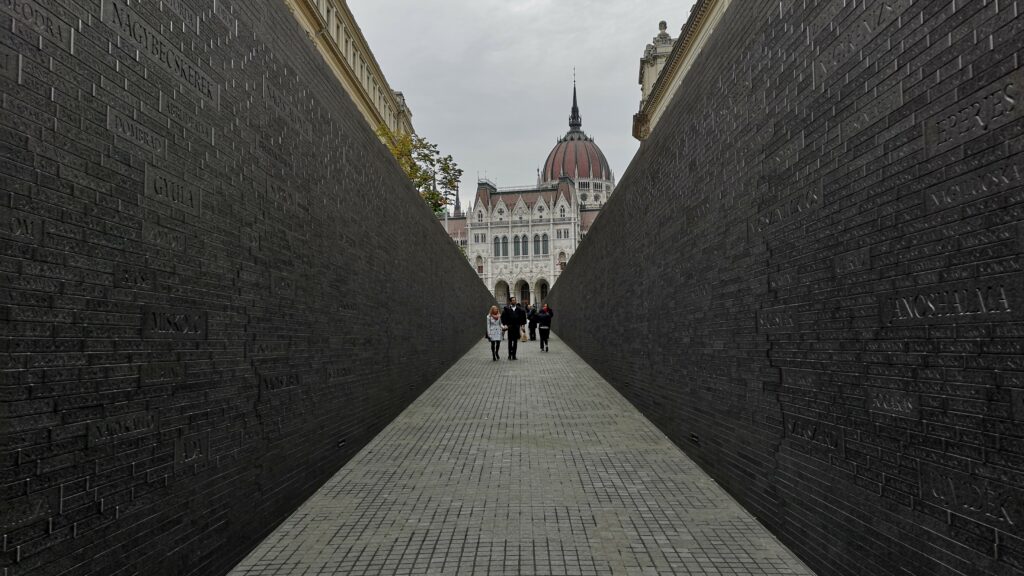
- Play with negative space. vast amounts of sky, water, sand in a photograph can emphasize the vastness of the place you’re in and it will make the image less cluttered.
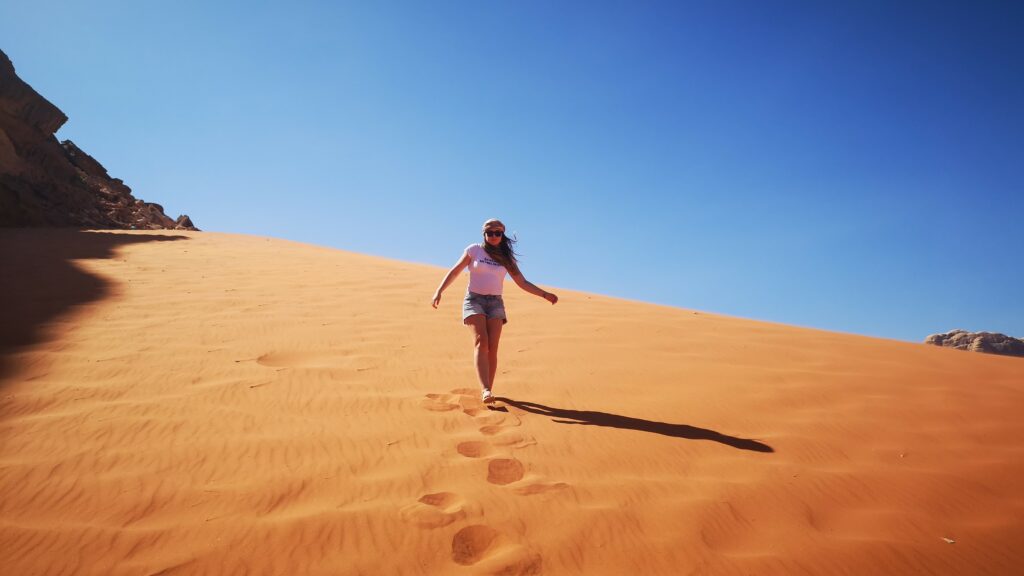
4. Play With Lights and Shadows
You can use light and darkness in many ways to your advantage. Whether you capture some light coming through a window in a dark room, a street light highlighting some elements while the rest of the scene remains in darkness or using the last moments of a sunset to create contrast between the sky and the land/sea. See an example below:
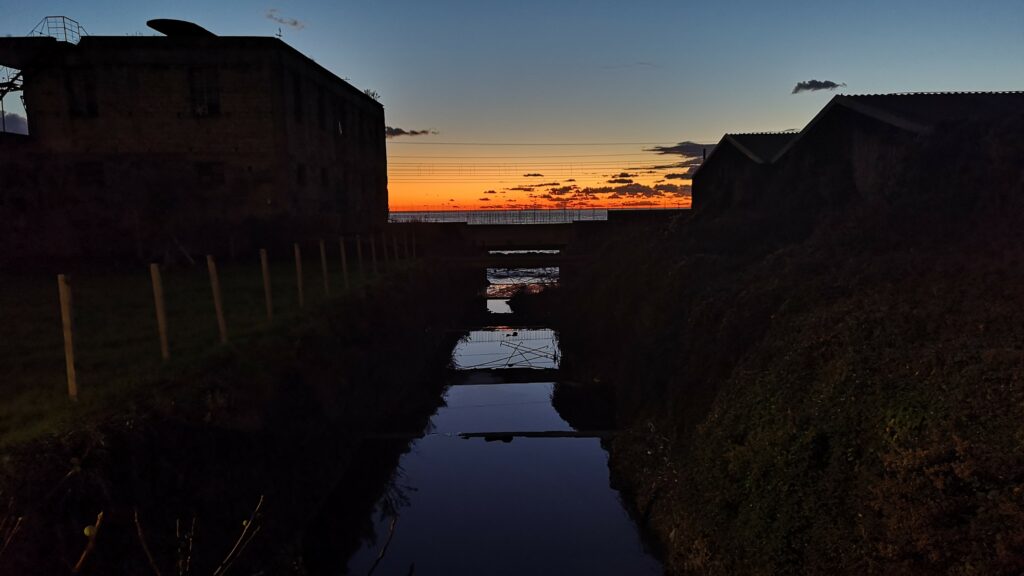
5. Photograph Local Animals
Oh, the possibilities here and endless! I always find cats, dogs, birds, horses and even interesting insects along the way. You can take a photo of them while they’re eating, sleeping or playing. You can snap a photo while you pet them or, if the animal is willing, take a selfie with them. For bonus points, you can even capture a landmark in the background. Your photos are guaranteed to make the viewer go “awww” and put a smile on their face instantly. I don’t know about you, but I want that! If you’re lucky enough and the timing is right, you can even take a photo of yourself with a flock of flying birds in the background. That will make it more dramatic or romantic, depending on the setting and context.
6. Take Photos With Your Food and Drinks
While I agree that not all your meals should go on Instagram, you can snap a photo of a more special meal in a pretty setting, a glass of wine with a stunning backdrop, a cone of gelato next to a landmark and so on. You can also take pictures of traditional foods to document your experience and discuss your recommendations with friends after you return home. Food photos are better if you, or other people appear to be interacting with the subject. Lift those spaghetti in your fork or show a steak in the process of being cut. To add life and authenticity, include cooks, vendors or other people sitting at the table and eating at the location you’re at. You can also shoot from different angles — overhead, at eye level, or close-ups — to showcase the dish’s best features.
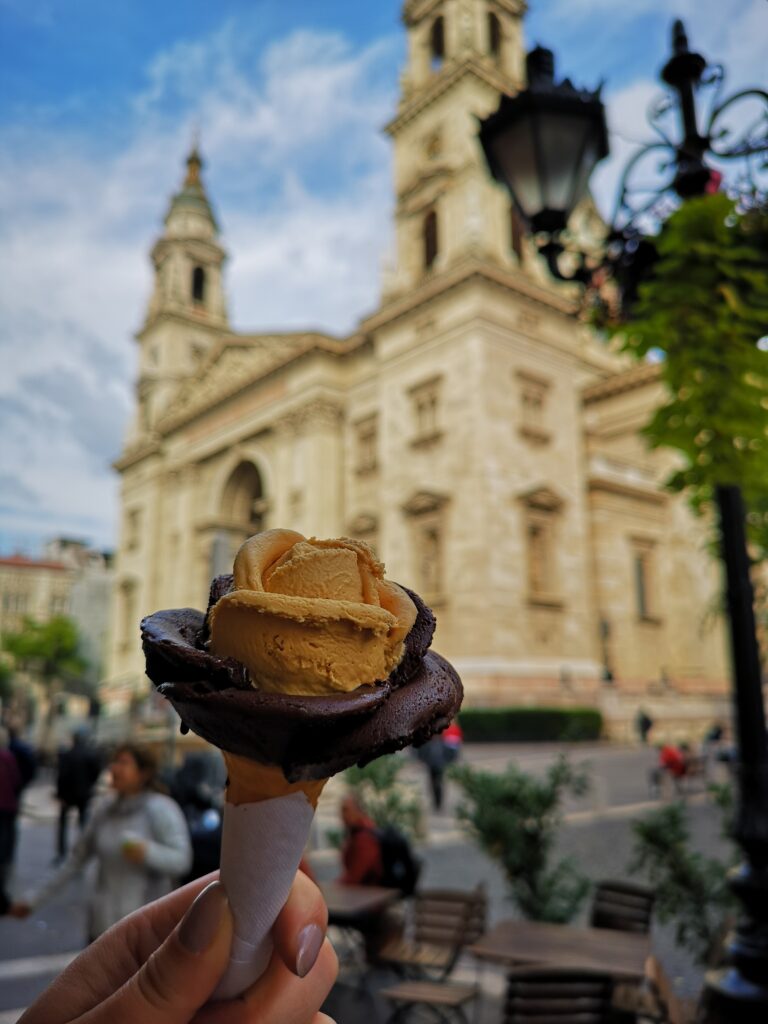
7. Find Other Aesthetic Elements to Photograph
If you’re more artistic, you can identify elements that would not be one’s usual subject for a photo, but in the right perspective, it can create a really interesting composition. You can choose a lone tree, an architectural ornament, wildflowers, rocks, doors with intricate details or a vintage signage post.

8. Capture the Essence of a Place Through Locals
You can capture the essence of a culture by photographing locals. Capture their everyday lives and don’t be afraid to catch them moving, gesturing, smiling. When taking pictures of people in their cultural environment, respect and sensitivity are crucial. Before taking someone’s picture, get their permission. If it’s possible, interact with the person in question in a polite manner by smiling, making a gesture, or starting a dialogue.
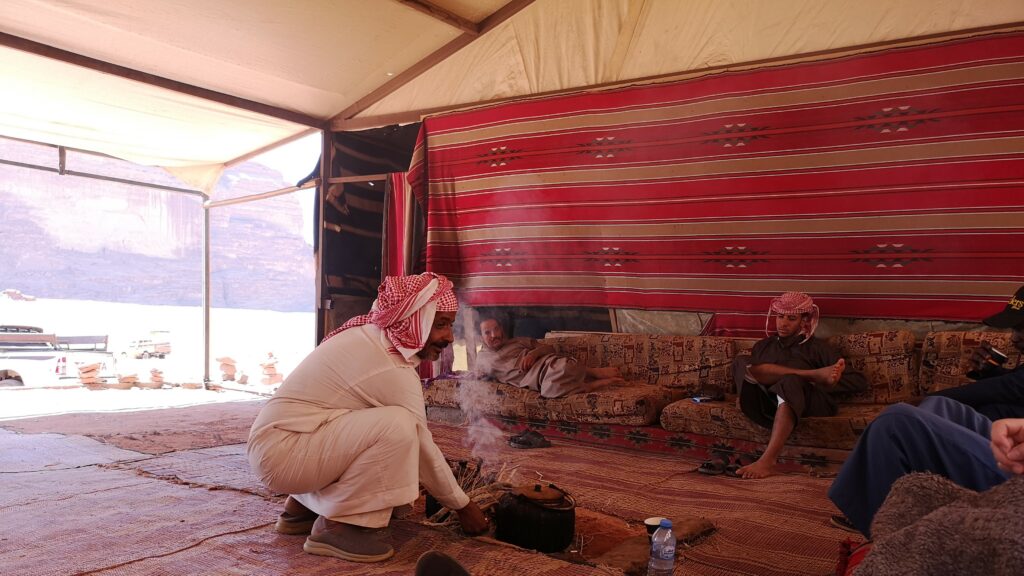
9. Evoke Other Senses
Photography is, by excellence, a visual experience. Nonetheless, there are ways in which the images can make the viewer engage other senses. For example, you can photograph close-ups of ancient walls so that one can image it’s texture. You can even take a photo of your hand touching surfaces. Smell and taste can be stimulated with a table full of foods that are known for being flavorful and with hot, steaming delicacies.

10. Experiment With Minimalist and Abstract Photography
Abstract and minimalist photography can take various forms. You can capture geometric shapes, close-ups, symmetric lines, abstract textures (e.g. peeling paint from a wall or door) or use negative space. Make sure to focus on simplicity, shapes, patterns, and intriguing compositions that transcend the literal representation of a subject. By the way, I found the little guy below chilling in Pompei :)

11. Drone Photography
The way we photograph the world has changed dramatically as a result of drone photography, which provides previously unattainable angles and amazing aerial views. It makes it possible for photographers to fly over landscapes and capture details like dimensions, patterns, and shapes that are not visible from the ground.

12. Take Advantage of Reflections
Wherever there’s a body of water, there’s an opportunity. It doesn’t matter if you can shot the reflection of the sunset in the ocean or sea, a castle or skyline in a lake or the image of a cathedral in a rain puddle. Reflections can also be found on other surfaces, like metal or glass, so you can easily make use of buildings nearby a landmark to take an interesting shot.
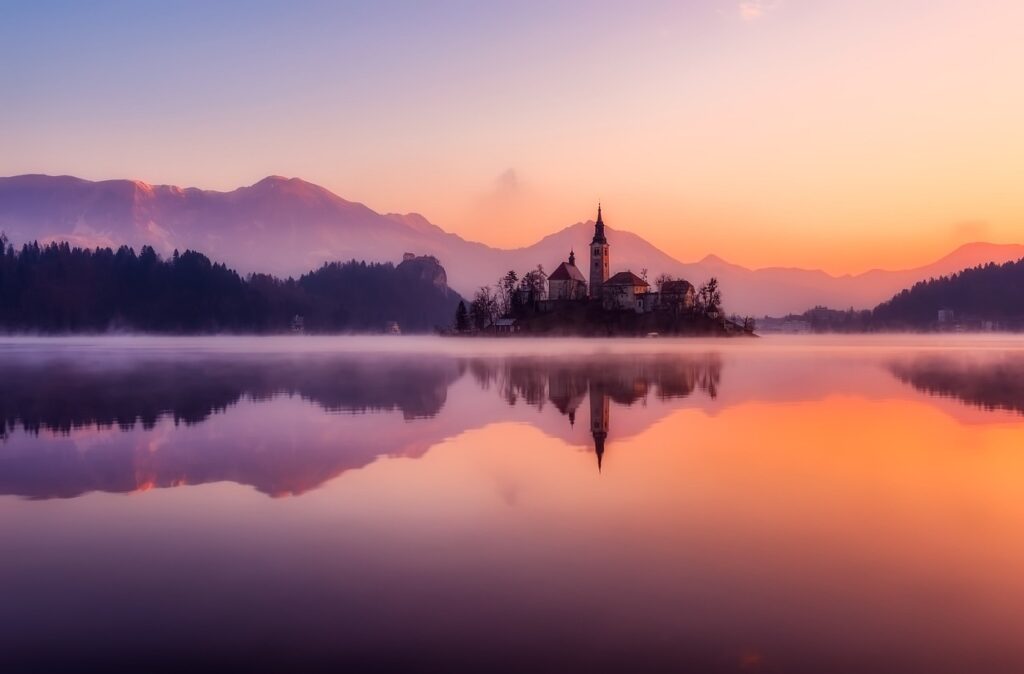
13. Find Worthy Shots in the Place Your Staying
You might say: “What could I possibly photograph in my accommodation? What if it doesn’t have anything special?”. I doubt that’s true. If you’re lucky, maybe you have a nice view, aesthetic designs, or a cozy spot for relaxing but if not, maybe you can find interesting details outside of your building, an intricate door or you can simply take pictures of the locals you can see from your balcony. Taking selfies inside the accommodation can also make the photographs more personal. Here’s a corner from the accommodation I chose for staying in Dubrovnik:
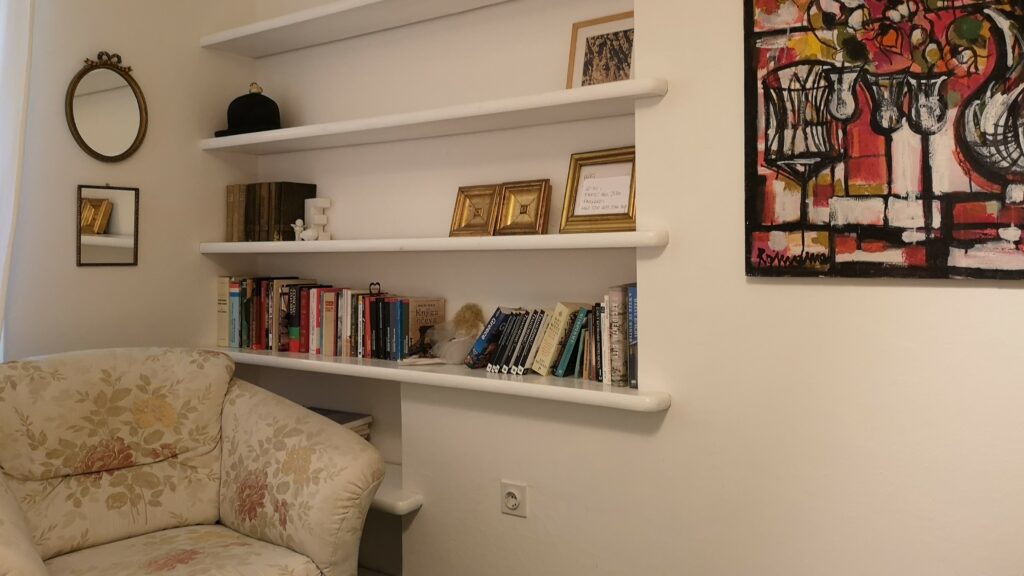
14. Experiment With Different Lenses
The selection of lenses in photography has a big influence on how scenes are photographed since they provide a variety of viewpoints, focal lengths, and opportunities for visual narrative. By experimenting with different lenses, photographers can capture the same subject in remarkably varied ways, opening up a world of creative possibilities. And before you say that you’re not a professional photographer with expensive gear, but only a simple traveler armed with a smartphone, you should know that you can also buy a cheap lens kit that latch to your device with a simple clip. You can experiment with wide lens, fish-eye lens or macro lens. Here’s an example for a photo I took on a random street in Italy:
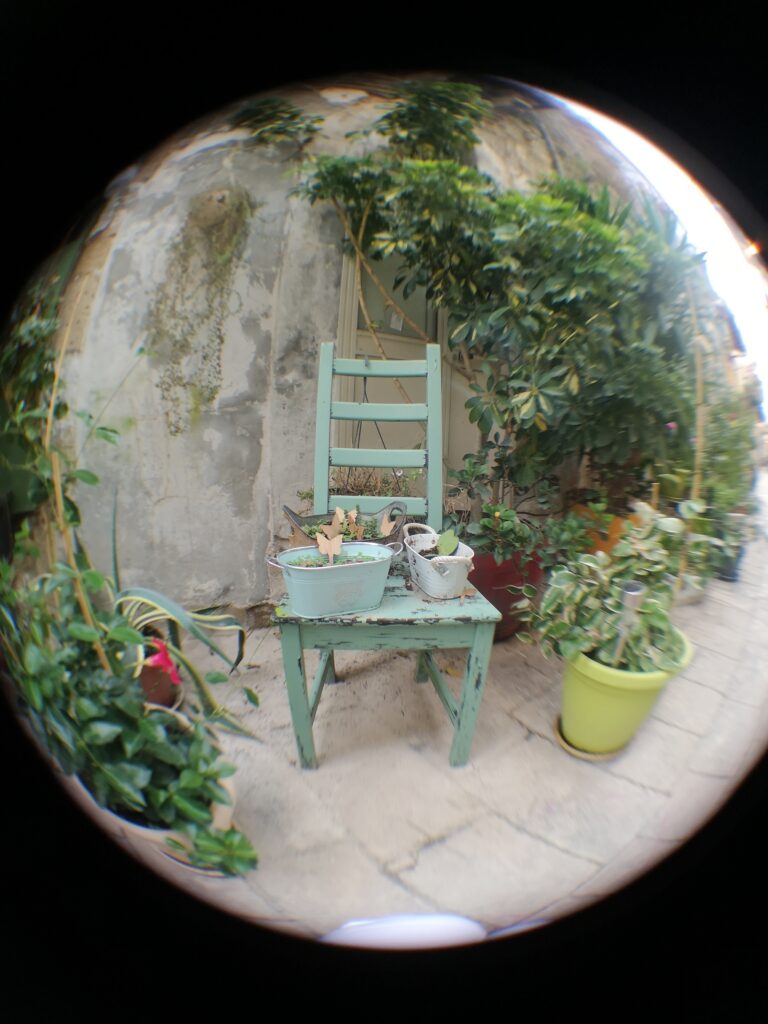
15. Create a Panorama
Showing off large landscapes, cityscapes, or any sight too big to fit in one frame becomes possible with panoramic photography. Photographers can achieve views that immerse viewers in a sweeping, wide-angle composition by patching together multiple images.

Conclusion: Taking Amazing Travel Photos on Holiday
In the realm of travel photography, the pursuit of distinctive and captivating shots is a thrilling experience unto itself. We’ve discovered a universe of possibilities—a tapestry of approaches and viewpoints that can turn everyday scenes into remarkable visual narratives.
By embracing the ideas presented in this article, you take a step beyond simple documenting and develop into a storyteller who uses a lens to capture timeless experiences.
As you continue to capture the beauty of your journeys, keep in mind that the most impactful pictures aren’t just taken; they’re experienced. They serve as the windows through which people can see the world as you see it, extending an invitation for them to travel with you on this amazing journey.
Now go forth and use your holiday photos to create, discover, and inspire.
Happy clicking and safe travels!
